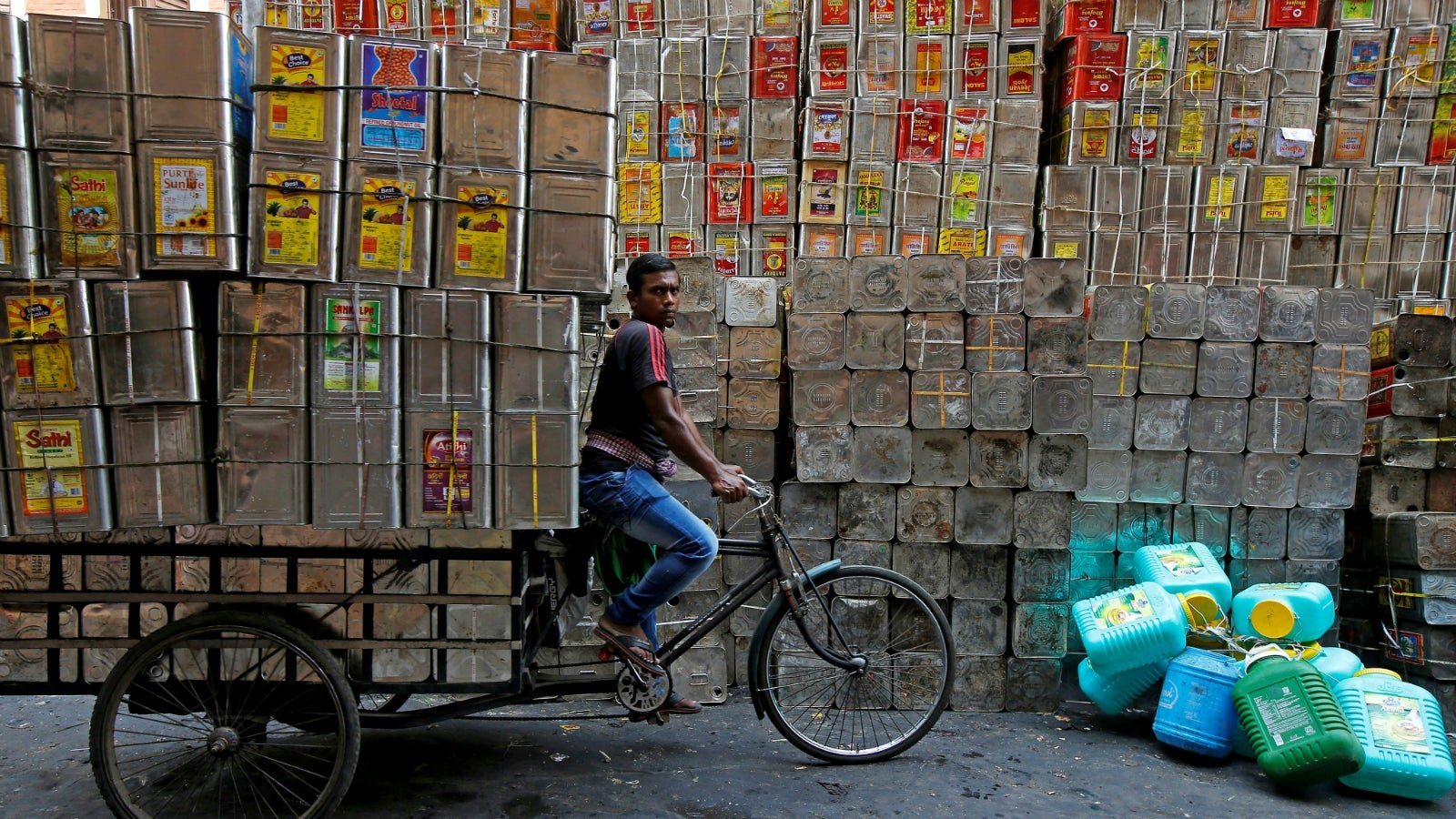Why everyone’s queuing up to buy this edible-oil maker—despite its $2 billion debt
Over the last few months, a long list of India’s consumer goods companies have queued up to acquire a debt-laden edible oils manufacturer.


Over the last few months, a long list of India’s consumer goods companies have queued up to acquire a debt-laden edible oils manufacturer.
Yoga guru Ramdev’s Patanjali Ayurved, Adani Wilmar, Godrej Agrovet, and Emami Agrotech had all bid for the three-decade-old Ruchi Soya. For now, Adani Wilmar—a joint venture between the Adani Group and Singapore-based agri-trading major, Wilmar Group—is the front-runner.
However, Ruchi Soya itself has since December 2017 been drowning in a debt of Rs12,000 crore, even facing insolvency proceedings. So, what’s still drawing the suitors?
Market experts reckon that a strong portfolio of mass-market edible-oil brands and a ready-made infrastructure of manufacturing plants are the main attractions.
For starters, as of 2017, Ruchi Soya, along with Adani Wilmar and Emami, was one of India’s largest edible oil companies, according to data from research firm Euromonitor.
The company is in the business of processing of oilseeds and refining various vegetable oils to make them edible. Besides cooking oil, the company produces food products from soya and other value-added products, selling them under the Nutrela, Ruchi Gold, Ruchi Star, Sunrich, and Mahakosh brands.
Ruchi Soya’s brands reach over a million Indian outlets. This is apart from its exports business (pdf) which earned Rs1,376 crore ($202 million) in financial year 2017. It also has palm-oil plantations across six states in India.
For most companies, therefore, buying Ruchi would mean immediate access to brands that already have a wide market reach. For instance, the acquisition could make Patanjali a major player in the segment.
Edible oil is a big business in India and slated to get even bigger. Between 2012 and 2017, according to Euromonitor data, sales grew by 25% annually to reach Rs1,34,300 crore.
A growing population, an increasing number of nuclear families, and independent working individuals living in urban regions are pushing sales. It also helps that both rural and urban consumers are switching loose cooking oils for branded ones, according to Euromonitor.
There are significant concerns, however. ”Edible oil is anyway a very thin-margin business, so if someone (a company) can get the existing plants and manufacturing facilities, it makes sense,” said a consultant who has closely studied Ruchi Soya, on the condition of anonymity. “Financially, it (buying Ruchi Soya) still does not make sense, given the sheer debt on its book,” the consultant added.
An emailed questionnaire to Ruchi Soya remained unanswered.
Selling oil
Founded in 1986 by a first-generation entrepreneur, Dinesh Shahra, the company started off with trading in commodities and oil-milling.
Over the years, backed by strong marketing campaigns and a large distribution network, Ruchi Soya built a sizeable business around branded cooking oils and packaged foods, including soya chunks. The company has 19 manufacturing facilities across India.
In financial year 2015, it surpassed a turnover of Rs28,000 crore. In fact, Ruchi Soya has often featured in Deloitte’s ranking of the world’s 50 fastest-growing consumer product companies.
However, the company entered a period of turmoil in 2012 following a series of events that dramatically deepened its debt and increased its losses.
Three years of insufficient rains led to a reduction in the area of soya under cultivation. This increased the cost of production. Besides, rising competition, too, dented its sales.
Meanwhile, the company’s castor seed trading business suffered following the 2015 global commodity price collapse. “…prices of castor seed collapsed, and the crop that we thought would save us from dwindling soya production singed us,” Shahra told the Economic Times newspaper in a 2017 interview.
Between 2013 and 2017, the turnover dropped from Rs26,485 crore to Rs18,620 crore. A profit of Rs236 crore in 2013 turned into a loss of Rs1,257 crore in 2017, and its debt ballooned.
Then, in May 2016, following allegations of manipulative trading practices, market regulator Securities and Exchanges Board of India barred Ruchi Soya from trading in castor seeds. ”The year 2016 was a disaster for us,” Shahra said in the interview last year.
To help fix some of the damage, it entered into a refining and packaging partnership with Patanjali in February 2017. But this brought little respite as creditors moved the Reserve Bank of India (RBI) to recover their dues.
Finally, in December 2017, Ruchi Soya entered into the Corporate Insolvency Resolution Process after the RBI put it on a list of 40 companies to face bankruptcy proceedings. Its creditors, Standard Chartered Bank and DBS Bank, have both filed petitions at the National Company Law Tribunal to recover their loans.
Its investors’ fate now rests on which suitor pulls Ruchi Soya out of the abyss.